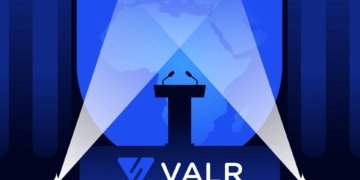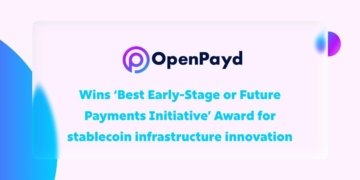Blockchain Education: Essential for Accelerating Web3 Mainstream Adoption
The Rising Importance of Blockchain Education
In recent years, the concept of Web3 has garnered immense attention, promising to revolutionize the digital landscape by empowering people through decentralized networks. At the core of this transformation is blockchain technology, poised to disrupt industries from finance to healthcare. However, its widespread adoption hinges on one critical factor: education.
Blockchain technology is intricate, and for it to achieve mainstream status, understanding its complexities is vital. The journey from Web2 to Web3 represents a seismic shift, paving the way for a decentralized internet where users can own their data and digital assets. As a veteran educator emphasizes, the key to unlocking this potential lies in a robust foundation of blockchain knowledge.
Why Blockchain Education Matters
Demystifying Blockchain Technology
Blockchain is often shrouded in mystery, viewed as difficult to understand. For the uninitiated, terms like decentralized ledgers and smart contracts can seem daunting. Through comprehensive blockchain education, we can demystify these concepts, making them accessible to individuals of all backgrounds and skill levels.
Empowering the Workforce
As blockchain technology continues to grow, so does the demand for skilled professionals. For companies in the blockchain space, hiring employees with the requisite knowledge is no longer optional; it’s imperative. Comprehensive education programs are essential for equipping the workforce with the skills needed to drive this technological evolution. By investing in education, businesses can ensure they have the talent necessary to thrive in a Web3 ecosystem.
Facilitating Innovation
Education serves as a breeding ground for innovation. By understanding the intricacies of blockchain, entrepreneurs and developers can build novel solutions and applications that leverage the benefits of decentralization. From decentralized finance (DeFi) to non-fungible tokens (NFTs), the possibilities are endless for those equipped with the right knowledge.
Implementation Strategies for Effective Blockchain Education
Incorporating Blockchain into Academic Curricula
One of the first steps in promoting blockchain education is integrating it into academic curricula. Universities and educational institutions worldwide must recognize the value of blockchain studies by offering courses that delve into its myriad applications. From computer science to business schools, blockchain’s relevance is vast, and its inclusion in educational systems is crucial.
Creating Industry Partnerships
Strengthening ties between academia and the blockchain industry is vital for ensuring that educational content remains relevant and up-to-date. By partnering with blockchain companies, educational institutions can provide students with real-world insights and experience, better preparing them for careers in the industry.
Utilizing Online Learning Platforms
The internet offers an incredible opportunity to disseminate blockchain knowledge to a broader audience. Online learning platforms like Coursera, Udemy, and others can democratize access to high-quality educational resources, enabling individuals to learn at their own pace. By leveraging these platforms, educators can ensure that blockchain education transcends geographical boundaries.
Challenges in Blockchain Education
Lack of Standardization
Currently, one of the obstacles facing blockchain education is the lack of standardization. With no universally accepted curricula or certifications, students may struggle to verify their expertise. Establishing a standardized framework that ensures consistent quality and rigor in blockchain education is essential for addressing this issue.
Keeping Pace with Rapid Technological Advances
Blockchain technology is continually evolving, with new developments emerging at a rapid pace. Educational programs must remain agile, adapting their content to align with these advancements. This requires educators to remain engaged with industry trends, ensuring that students receive the most relevant and up-to-date information.
Conclusion: The Path Forward
As the world stands on the brink of a Web3 revolution, blockchain education emerges as a critical component for realizing its full potential. By equipping individuals with the knowledge and skills necessary to navigate this evolving landscape, we can accelerate blockchain’s adoption and pave the way for a more decentralized future.
In conclusion, the path forward lies in the hands of educators, policymakers, and industry leaders who must collaborate to build a robust and accessible education ecosystem. It’s a journey that requires commitment and foresight, but the rewards promise to reshape the digital economy and empower individuals worldwide.
Through concerted efforts, we can ensure blockchain education is the linchpin in unlocking the transformative power of Web3 for all. The potential is vast, but it hinges on one timeless truth: knowledge is power.














